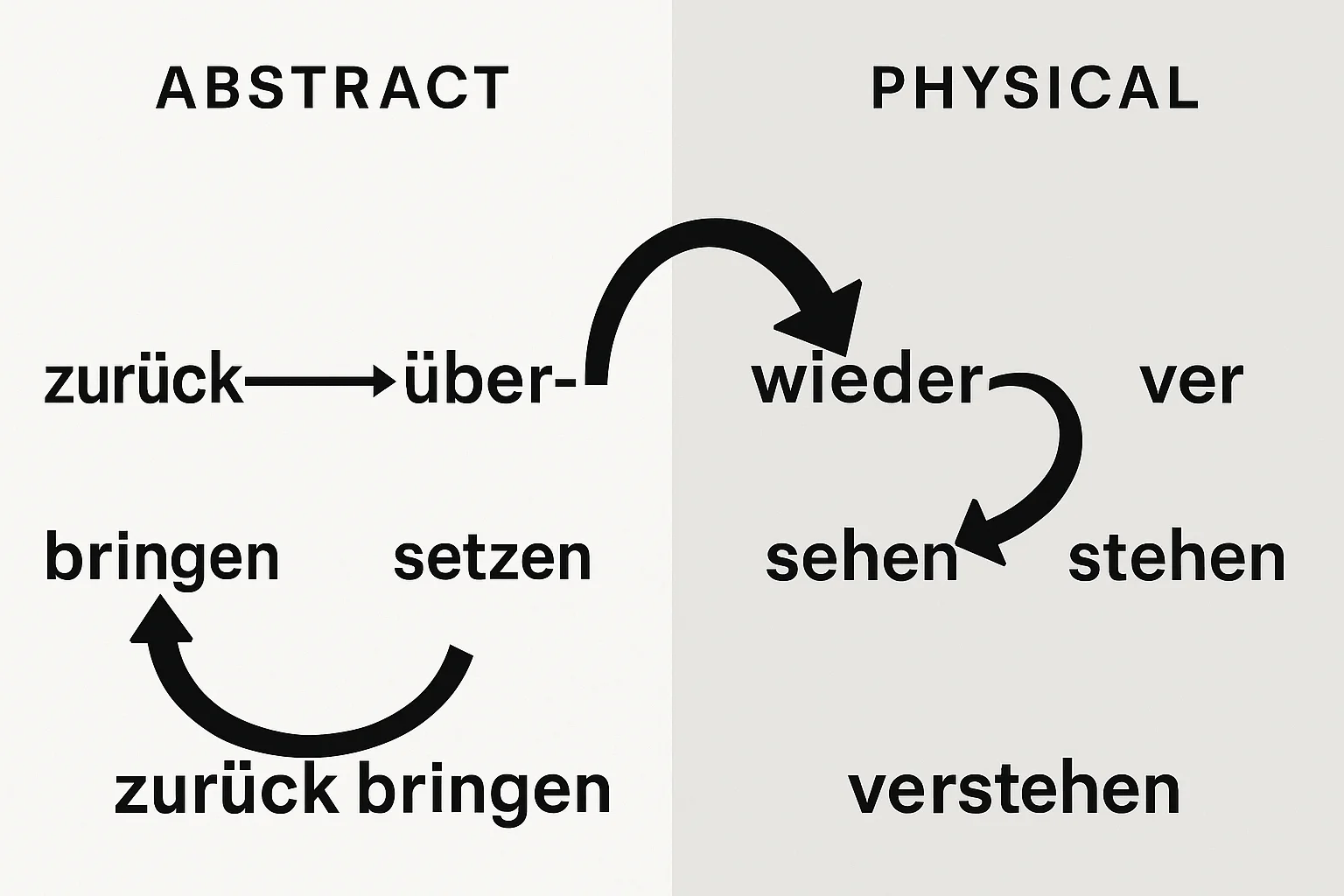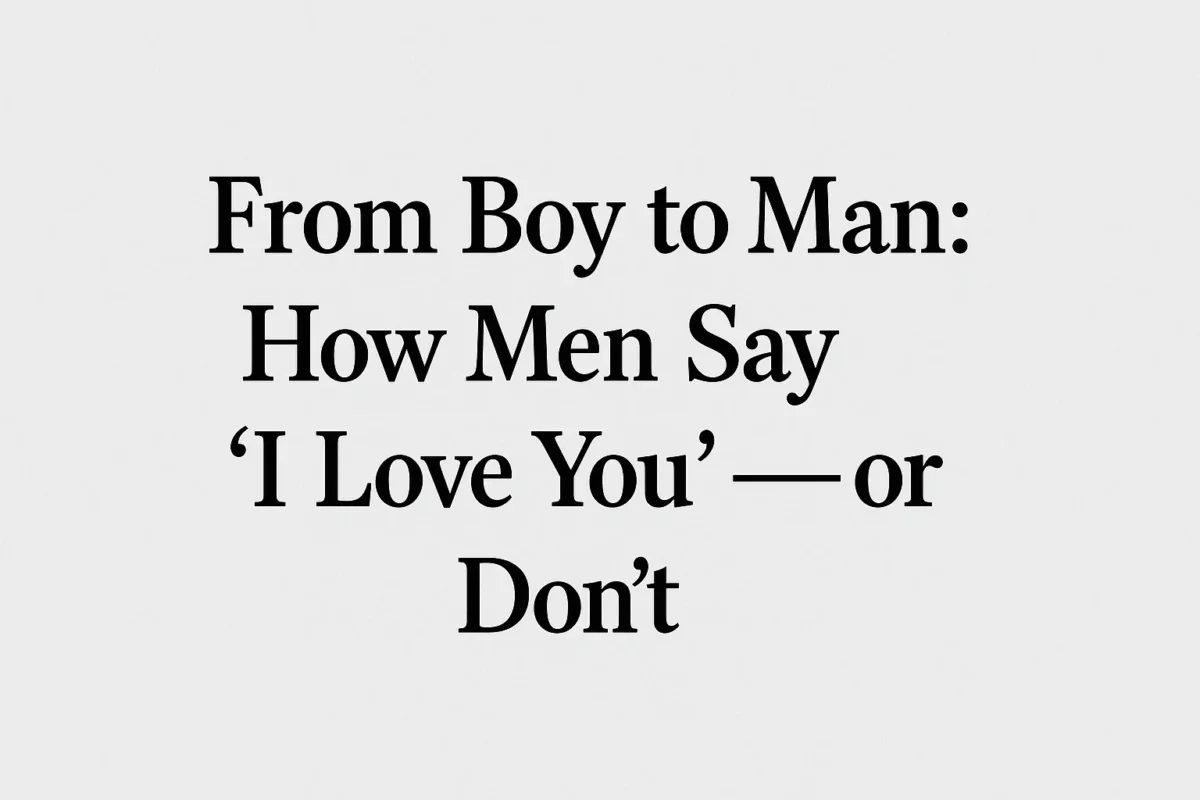🔗 Choose your language:
👉 Start your journey with us
Boys Talk, Men Don’t?
A 14-year-old boy might say “I love you” ten times a day — in messages, on TikTok, in songs.
A 40-year-old man might never say it — not because he doesn’t feel it, but because he doesn’t need to say it.
Language doesn’t just show emotion. It hides it, protects it, replaces it.
And nowhere is this more true than in how men talk about love.
Age Changes How We Express Love
| Age | Pattern | Expression |
|---|---|---|
| 12–16 | Copying what they hear | “I love you so much!! 😍”, “You’re my world”, “Я тебя обожаю” |
| 17–25 | Intensity and insecurity | “Ты моя вселенная”, “Ich liebe dich” — often too soon |
| 26–45 | Fewer words, more action | “Ты знаешь”, “Я с тобой”, silent gestures |
| 46+ | Silence with presence | A look, a gesture, a shared routine. No need to speak. |
In many cultures, boys talk to impress.
Men don’t talk — they build, show, endure.
Arabic: When Love Is in the Deed, Not the Word
In Arabic, men rarely say “I love you” directly.
Instead, they say:
| 阿拉伯语 | Literal Meaning | Real Meaning |
|---|---|---|
| أحبك (uhibbuka) | I love you | Reserved, formal, often poetic |
| حبيبي / حبيبتي (habibi/habibti) | My beloved | Everyday speech, soft intimacy |
| أموت فيك (amūt fīk) | I’d die for you | Used playfully or passionately |
| أنت عيوني (anta ʿuyūnī) | You are my eyes | Deep loyalty, care, devotion |
In Arabic-speaking cultures, a man might express love by:
- bringing tea to her family,
- fixing something silently,
- or simply saying nothing and showing everything.
Japanese: When Love Is Respect, Not Confession
Japanese culture values harmony and emotional modesty.
| 日语 | Phrase | Meaning |
|---|---|---|
| 愛してる (aishiteru) | I love you | Deep, serious, rarely said aloud |
| 好きです (suki desu) | I like you | Common in dating, gentle and polite |
| 大切な人 (taisetsu na hito) | Important person | A respectful, caring way to express affection |
A Japanese man might never say “I love you” —
but will stand by you for life.
More on Japanese here:
👉 Learn Japanese
German and Ukrainian: Direct Words, or Gentle Detours
| Language | Phrase | 评论 |
|---|---|---|
| 德国 | Ich liebe dich | Rare, strong, usually in long-term relationships |
| Ich hab dich gern | Soft, friendly affection | |
| 乌克兰 | Я тебе кохаю | Romantic love, formal |
| Я тебе люблю | Broader, often emotional but not always romantic |
German and Ukrainian men often struggle with emotional speech.
They do — but don’t always say.
Why Men Speak Differently — And Why It Matters
Men are taught to:
- Be strong.
- Be silent.
- Not need words.
But language shapes connection.
If we don’t say anything — we risk not being heard at all.
在 列维廷语言学校, we’ve worked with men from over 20 countries.
And one truth repeats:
Many men don’t know how to say “I love you” — even in their native language.
So we help them find a way — not just in English or German, but in their own voice.
What We Teach Instead of Phrases
We don’t push scripts. We teach:
- How to express care through tone, not just words
- How to be direct — or beautifully indirect
- How to say enough, but not too much
Because “I love you” is only powerful when it means what it says —
and sounds like 你.
Coming Next in This Series
“She Knows. He Doesn’t Say It.”
Why Women Expect Words — and Men Hide Behind Silence.
We’ll explore the gender gap in emotional language — and how to bridge it.
© Tymur Levitin — Founder, Teacher & Translator
Start Language School by Tymur Levitin / Levitin Language School
🌍 Explore Our Language Pages
- Learn English:
levitinlanguageschool.com/english-study |
languagelearnings.com/english - Learn Spanish:
levitinlanguageschool.com/learning-spanish |
languagelearnings.com/spanish - Learn German:
levitinlanguageschool.com/studying-german-easy |
languagelearnings.com/german - Learn Japanese:
levitinlanguageschool.com/learning-japanese - Learn Arabic:
languagelearnings.com/arabic - Blog:
levitinlanguageschool.com/blog |
languagelearnings.com/blog
👉 选择语言






















